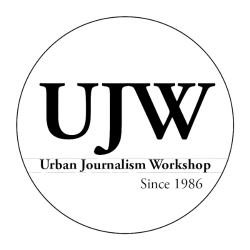By Gabrielle Headly
UJW Staff Writer
OXON HILL, MD — Lifelong Oxon Hill resident Bonnie Bick has witnessed many forms of development in her hometown over the decades, some she has supported, some she hasn’t.
“They’re stealing from all of the students, they’re stealing your quality of life,” said Bick, an environmental activist.
In Oxon Hill, these feelings are common. With the ongoing expansion of the National Harbor, living in a fast-growing area is nothing new to residents. But when Wal-Mart planned to build between a high school and an elementary Montessori school, some locals drew the line.
According to Bick, three years ago the corporation attempted to build between Oxon Hill High School and John Hanson Montessori School. Due to “holes in the case,” Wal-Mart had to go back to the drawing board and put their plans on hold.
Several years later, the issue of Wal-Mart building between the two schools has resurfaced. Spearheading the initiative since 2011 is John Hanson parent Nicole Nelson with the help of the Oxon Hill High School Student Government Association, which joined the battle in August 2013.
Residents are concerned about safety, traffic, and the misconception of jobs. According to Paulette Brown,an adviser to the school’s student government associationr, Wal-Mart will bring unwanted attention to the new campus, increase traffic on Clipper Way (formerly Felker Avenue) and will only hire employees over the age of 18, which the majority of the high school’s students are not.
Amanda Henneberg, a spokeswoman for Wal-Mart, said safety and security of the customers is their top priority.
“The new site plan now includes a 50-foot landscape buffer between the Montessori School and the store,” Henneberg said. “We have also removed the vehicular access that was previously located between the Montessori school and the store.”
Henneberg believes that the distance from the store to the school is far enough that Wal-Mart’s traffic should not interfere or create safety issues at Oxon Hill High School. Even with these efforts made by Wal-Mart to mitigate the issue, community members are still passionate about their cause.
“Our main problem is getting the word out,” said Marcel Adams, SGA President. “We’re only activists and community members, so we don’t have as much influence compared to a corporation like Wal-Mart.”
Activists agreed that the way to win this battle is through student participation.
“You should focus on people power.That’s the only way to stop it [Wal-Mart]–it’s a political issue” said Bick.
The proposal is currently sitting before the Prince George’s County Council. But to prove that this effort is worth fighting, students said there still needs to be significant participation in the cause’s efforts.
“We’re trying to recruit members to join the fight,” said Adams. “We need people to talk to the elected officials because the only people who have the power to tell Wal-Mart ‘No’ is the elected officials.”
Keith Brooks, a local awyer, thinks the community members in Oxon Hill should find “The best alternative to a negotiated Agreement and the worst alternative to a negotiated agreement.”
“Ideally, a good negotiated settlement would be a ‘win-win’ situation for both Walmart and Oxon Hill,” Brooks said.
If this plan does fall through, for some community members there is no compromise. In the early stages of the battle, these activists made it clear that they did not oppose Wal-Mart, only its location but if this plan goes into place, many community members will not support either.
“There is no compromise, it’s like a giant:a s soon as you start talking about compromise, you’ve lost.” Bick said.


